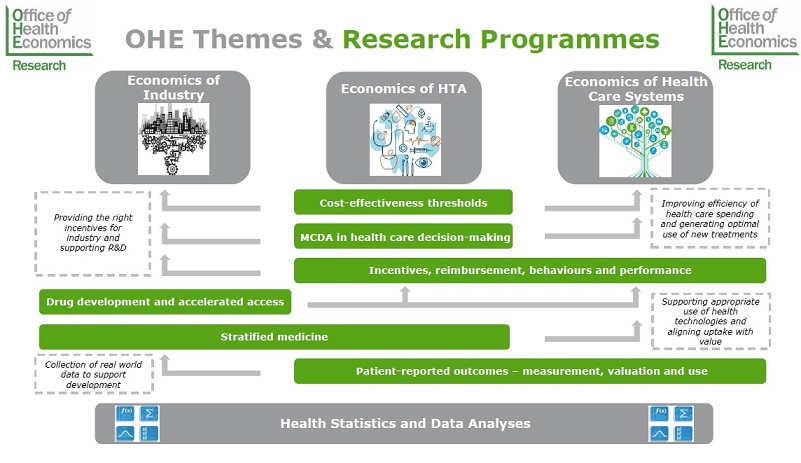Research

Does a Biomedical Research Centre Affect Patient Care in Local Hospitals?
20 February 2017
A new publications titled: Does a biomedical research centre affect patient care in local hospitals? has just been published in Health Research Policy and Systems. The…

How Should We Choose the Measure of ‘Average’ Preferences?
8 February 2017
New OHE Research Paper: What is the normative basis for selecting the measure of ‘average’ preferences for use in social choices?

The Office of Health Economics Becomes a Registered Charity
3 February 2017
On the 1st February 2017 OHE held a launch to celebrate our new status as a registered charity. The establishment of OHE as a charity offers…

OHE Lunchtime Seminar with Andrea Manca: Economic Evaluation for Decision-making and the Value of Access to Individual Patient Data
16 January 2017
Professor Andrea Manca from the University of York will lead an OHE Lunchtime Seminar on 13th February 2017 on the topic of economic evaluation for decision-making…

Comparing the Cancer-Specific EORTC-8D and the Generic EQ-5D-3L
4 January 2017
This early view paper published in Quality of Life Research compares a condition-specific preference based measure to a generic measure in a population of cancer patients.

New Publication: Important Aspects of Health Not Captured by EQ-5D
15 December 2016
A new OHE Research Paper examines the views of the UK general public about aspects of health considered to be missing from the five EQ-5D dimensions.

OHE Lunchtime Seminar with Martin Chalkley and Jon Sussex: Providing Health Care to NHS Patients: How Much Does Ownership Matter?
13 December 2016
On Monday 16th January, Professor Martin Chalkley (University of York) and Jon Sussex (RAND Europe) will lead an OHE Lunchtime Seminar on the topic of: Providing…

Eliciting the Relative Value of Life Extension at the End of Life
29 November 2016
Rachel Baker of Glasgow Caledonian University and Koonal Shah of OHE discussed societal viewpoints regarding end of life treatments at a recent seminar.

Health Economic Evaluation throughout the Ages
15 November 2016
On Wednesday 21st September 2016, Professor Philip Clarke from the University of Melbourne led an OHE Lunchtime Seminar on the topic of: Health Economic Evaluation throughout…